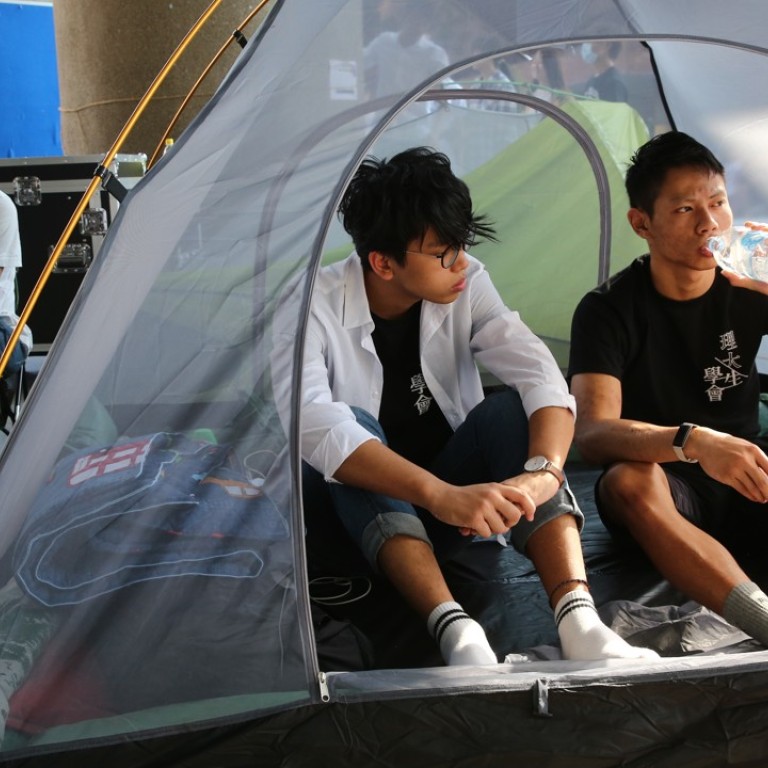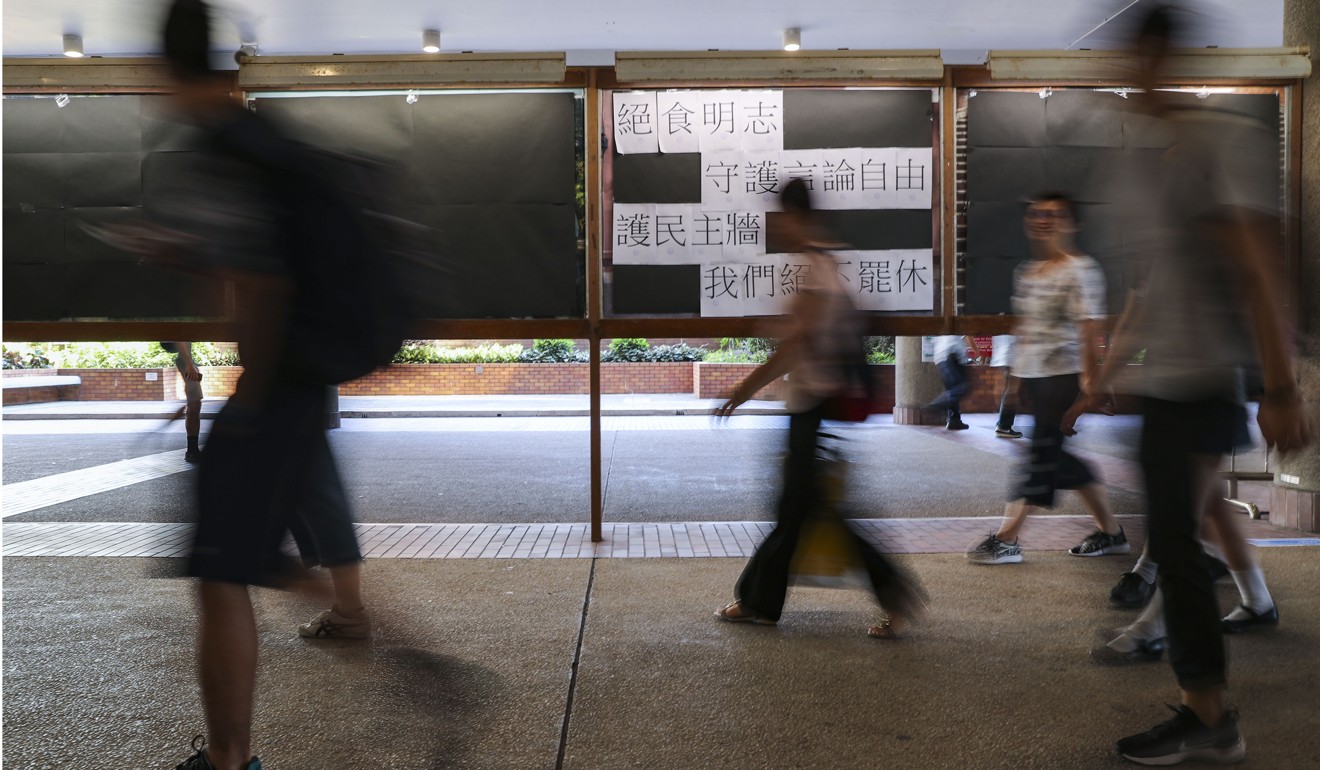
Hong Kong Polytechnic University students end hunger strike over bulletin board which carried pro-independence signs
Union and officials reach agreement over management of ‘Democracy Wall’
Three students at Polytechnic University ended their two-day-old hunger strike on Sunday afternoon after resolving a dispute with campus chiefs over a bulletin board where pro-independence messages were posted.
Both PolyU and the students released separate statements at about 5pm, but did not explain how they had come to an agreement.
The row began almost two weeks ago after the union temporarily relaxed rules for posting messages on the board – the so-called Democracy Wall – following the government’s unprecedented ban on the separatist Hong Kong National Party (HKNP).
After the changes, some pro-independence messages went up on the board. Two PolyU ultimatums to restore the wall were ignored, and school officials eventually covered the material with red paper. There was no indication that the union was behind – or supported – the independence advocacy. It accused the officials of suppressing free speech.
“[The student union] has agreed to restore the wall to its original mode of operation and manage the wall in accordance with the rules and regulations agreed by both parties,” the university’s statement said.

“Given this, the university will continue to delegate the management responsibility of the part of the wall which is now temporarily managed by the university to [the union].”
The union’s statement only said it had received the university’s statement and the “confirmation” of the union’s power to manage the wall.
With the statement issued, the hunger strikers – PolyU student union president Lam Wing-hang and union council chairman Victor Yuen Pak-leung – started to drink sweet beverages, after having nothing but water for 44 hours. The third student – Chinese University masters student Hendrick Lui Chi-hang, who joined the duo on Friday night when their campaign began – also ended his strike.
At a press conference at about 6.30pm, Hazel Cheng Yuet-ting, the union’s external vice-president, said it had agreed to restore the wall and the original posting rules, but denied that it was “a step back”.
“We are just restoring the original mode of management, and reinstating the student union’s control over the wall,” Cheng said.
She added that the union would continue to make it own decisions on changing the posting rules. “We will inform the university but will not seek its approval,” she said.
According to Cheng, during the hunger strike, the university sent several representatives to speak to the protesting students, including trying to persuade them to resume eating. “But we made it clear that we wouldn’t stop until the university returned the wall to us,” Cheng said.
On Thursday, a group of about 10 students, including committee members of the PolyU student union, stormed management offices demanding to know why the university had covered the pro-independence messages.
Originally, school officials offered to meet students on Saturday afternoon. But the students rejected the closed-door meeting invitation and sent an email demanding an open forum be held on Friday. When that did not happen, they launched their hunger strike.
The Post learned that after the formal talks broke down Democratic Party lawmaker and PolyU lecturer Helena Wong Pik-wan, among other school staff, relayed messages between the management and students.
In the process, PolyU president Timothy Tong Wai-cheung clarified to Wong that the university was in no hurry to drive the protesting students away, to avoid escalating the situation. Tong also promised to hand the wall back to the union if the students agreed to restore the old posting rules.
Wong said both sides should defend free speech and academic freedom. She urged the university to adopt a more open attitude.
“Political censorship will do no good for the university,” Wong said. “It is also important for both the students and the university to maintain a dialogue and mutual understanding, instead of confronting each other.”
On Saturday, as 33,000 visitors attended a university open day, PolyU student union members handed out leaflets describing what had happened. The trio on the hunger strike received notices from PolyU’s property management body, warning that they had broken rules on using a university venue and saying the school reserved the right to take action.
Pro-Beijing groups were allowed onto campus to hold their own protest, shouting slogans against independence advocacy and supporting the university.
Student unions at six universities issued a statement accusing PolyU of seriously suppressing freedom of speech and being negligent in response to students’ demands, while 23 pro-democracy lawmakers urged the university president to meet the protesting students.
School officials offered to meet the students on Monday evening or Tuesday morning but the union rejected that.
On Sunday evening, the school had removed the red sheets covering the bulletin board. There were new posters criticising the school’s handling of the matter, but none had pro-independence messages.


